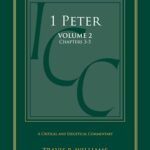Volition: A Function of Person or Nature?
As questions in the ongoing Trinitarian controversy become more refined, the “pieces” of the broader discussion are coming under greater scrutiny. One of these appurtenant issues is the locus of the will, that is, whether volition is seated in one’s substance (i.e., as a natural capacity) or in one’s subsistence (i.e., as a matter of personal agency).
Those who stress the threeness of God often regard volition as a property of personal agency and seat volition in each of God’s three persons. Each relational subsistence (person) of the divine substance possesses distinct volitional agency, though none ever possesses wholly independent volitional agency: the three persons of God never disagree. Those who take this view typically offer a qualified expression of the inseparability of divine operations, stressing that while the three members of the Godhead share a common purpose and exhibit mutual perichoresis, each possesses distinct agency. Thus while all three persons can say, “I AM,” only the Son can say, “I go to the cross”—great caution must be exercised in detailing the participation of the Father and the Spirit in the Son’s sacrifice: “Christ through the eternal Spirit offered himself unblemished to the Father” (Heb 9:14). The Father alone can say, “I am the one from whom all things are and for whom all things live” and the Son alone can say (and this long before his Incarnation), “I am the one by whom all things are and by whom all things live” (1 Cor 8:6). Throughout the whole history of divine theophany, the Father cannot say, at any time, “I wish to be seen,” but the Son can. And he has been seen many times—even before his formal incarnation (John 1:18). Etc. This distinction of agency opens the door to a hierarchy of economy that is eternally predicated of God. Those who are thusly minded are concerned that “the other side” dabbles with Unitarianism and its manifestations (Modalism, Monarchianism, Sabellianism, Patripassianism, etc.).
Those who give greater attention to the oneness of God typically regard volition as a capacity of God’s nature/essence/substance, which, being singular, results not only in a mutual divine decree, but also a singular expression of volition. The whole divine intention, like his substance, is both undivided and indivisible, further cementing the doctrines of divine simplicity and inseparability of divine operations. Stated otherwise, we should not think of the Father saying to the Son in Eternity past, “You shall go to the cross,” and the Son responding, “Yes sir”; we should think of all three saying, in chorus, “It is the singular intention of the Triune God that the Son shall go to the cross.” Any distinction of three wills in God, it is argued, requires the subjugation of one member of the Godhead by another, rendering the three persons unequal in power and authority. There can be no submission of any sort (whether ontological or economic) within God as God. The only “subordination” that may rightly be predicated of God must be tied to the introduction of a disparate nature—Christ’s human nature. Those who are thusly minded are concerned that “the other side” dabbles with Tri-Theism and its manifestations (Monophysitism, Nestorianism—even Arianism).
The argument for volition as a property of nature is manifold, and I do not intend to offer a comprehensive answer to it. My goal in this post is modest, viz., to answer the anthropological argument for volition as a property of nature. Stated compactly, this argument is that “Fallen man has a will, but his will is bound to act in accordance with his nature,” an assertion by which we “know that will is a property of nature and not person” (so Mike Riccardi). But on the face of things, this argument does not follow:
- That a man always acts in accordance with his nature is not the same as saying that volitional agency is a function of nature. All that is affirmed here is that one’s nature exerts influence upon the exercise of one’s will (and in the case of the unregenerate, exclusive influence).
- While all persons, that is, all relational instantiations of a common human nature, share in common a functional capacity for choice, each person is a distinct agent in exercising his power of choice—each person has his own mind, will, and emotions. Of course, we run into analogical tension here, viz., that humans are not homoousios (i.e., of the same substance) in the same sense that God is. At best we all have a share in humanity or perhaps natures that are homoiousios (i.e., of similar substance). Still, the operational reality is that while all persons are bound by a sin nature, each person has an individual expression of thought, affection, and intention distinct from all others: the one has many expressions. Volition can never be exercised generically by impersonal natures alone. Volition is an agency exercised by persons.
- This is made evident in the outworking of regeneration/sanctification. When a person receives a “new” nature, he does not become an entirely new volitional agent. Rather, his selfsame agency, a function of his enduring personhood, begins to operate in accord with competing natures. Indwelling sin (a.k.a., the remnants of the sin nature or the residue of sin) continues to assert influence, but this influence wanes inexorably as the believer extirpates this influence and walks increasingly in step with the dictates of his new nature and the indwelling Spirit.
It is my concern that in an overabundance of zeal to protect the unity/simplicity of God and the inseparability of divine operations, we run the risk of stripping his three persons of all personal distinction save that of bare subsistence. I am here suggesting a necessary implication of the I/Thou expressions the Scripture uses to describe the ad intra relationship of the three members of the Godhead is a distinction not only of subsistence, but also of agency, as expressed not only in action, but also in the inclination and resolve that attend action. While the fact of volition may be a shared or natural property, its actual exercise is a function of personal agents.




Mark,
You handled this extremely difficult topic and debate, I think, judiciously, and irenically. I think you exposed an area of weakness of those, who take the substance view as the locus for the personal will, as too simplistic for the triune relations of the Godhead.
Also, one of the more problematic areas for the “Simple Trinity” side is their dependence on the Nicene Creed and elevation of the Nicene Creed as authoritative seemingly equal to biblical revelation. At least that is my perception of Matthew Barrett’s book. I am open to correction.
Finally, Grudem’s revised Systematic Theology helps show the complexity of understanding the mysterious nature of the Trinity when he presents his nuanced (EFS) view as a response. He concedes the Monothelite position in the Godhead but offers that the one will has 3 different, distinct expressions just the one divine substance has 3 distinct, co-eternal expressions in the persons of the Father, Son, and Holy Spirit. (I hope I have not misrepresented the view). Whether this is a valid position or not, Grudem succeeded in showing that discussing the metaphysical nature of Trinity is a lot more profound than anybody can imagine.
David Diez
Miami Bible Church